Pharrell's Blank Canvas
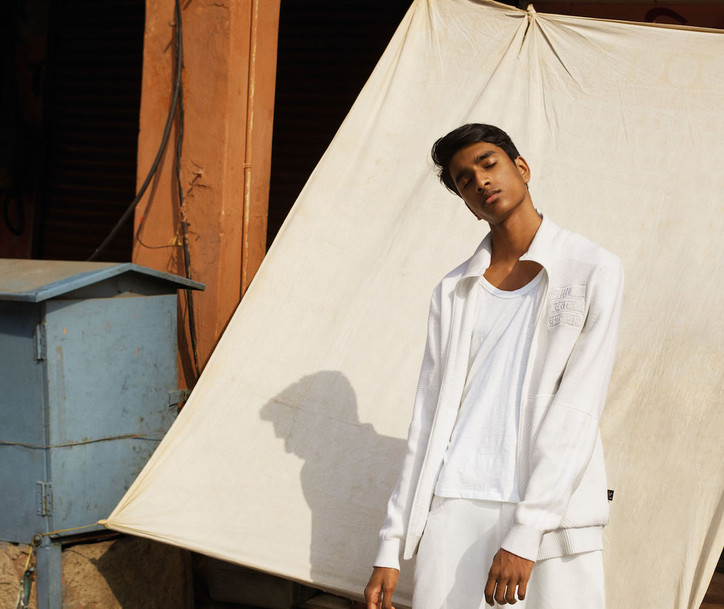
So, let's start Spring off on a good foot— feeling festive, creative, and open to all colorful opportunities.
- Pick up your pair on February 23rd.
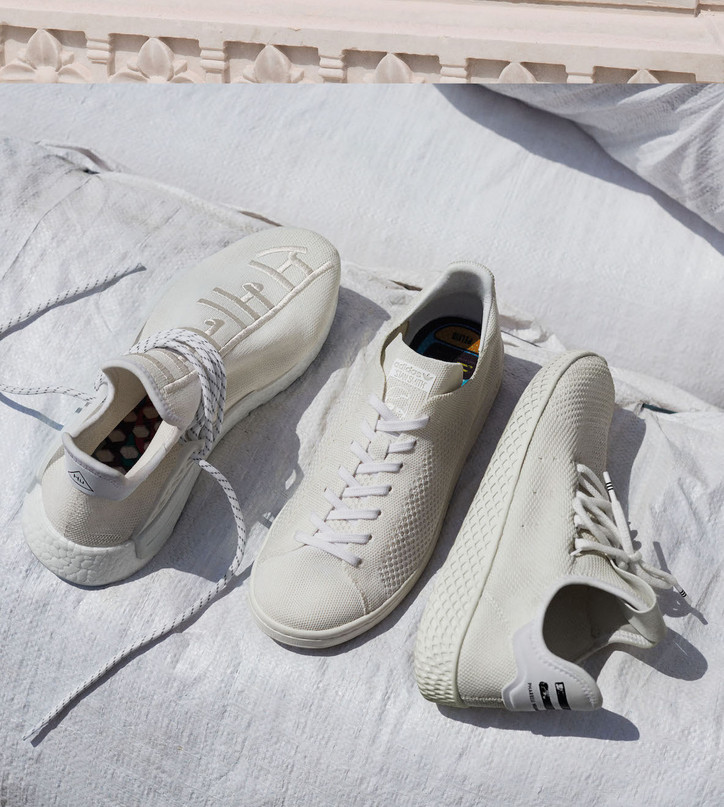
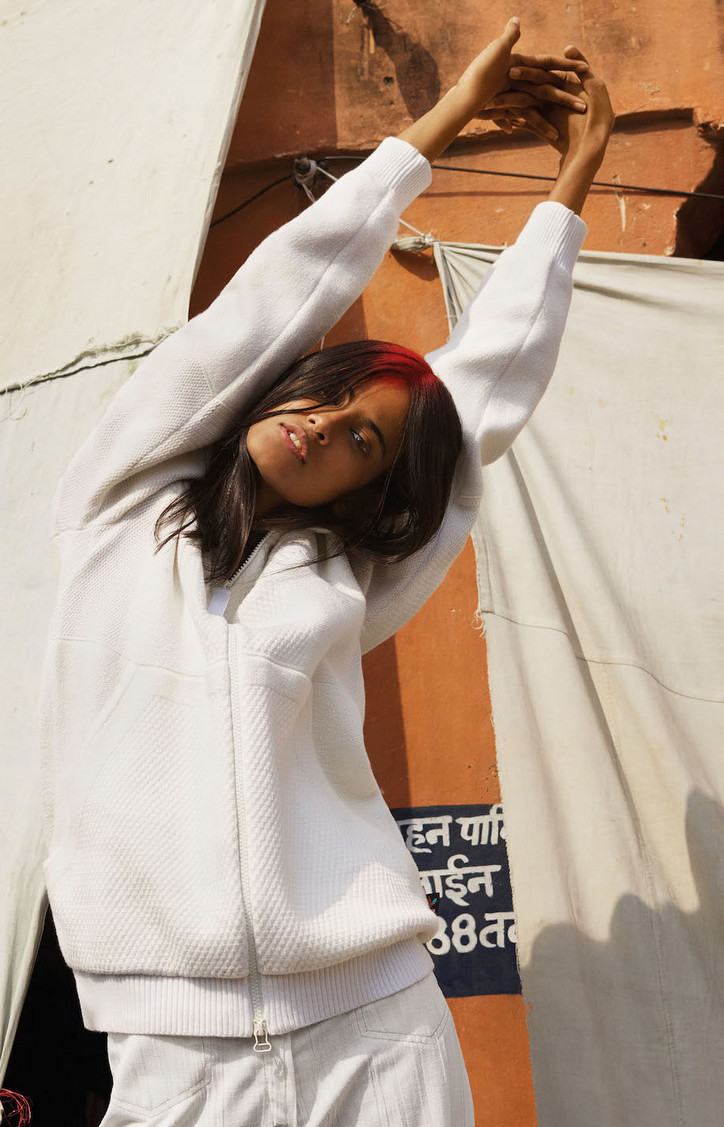
Images courtesy of adidas
Stay informed on our latest news!

So, let's start Spring off on a good foot— feeling festive, creative, and open to all colorful opportunities.


Images courtesy of adidas
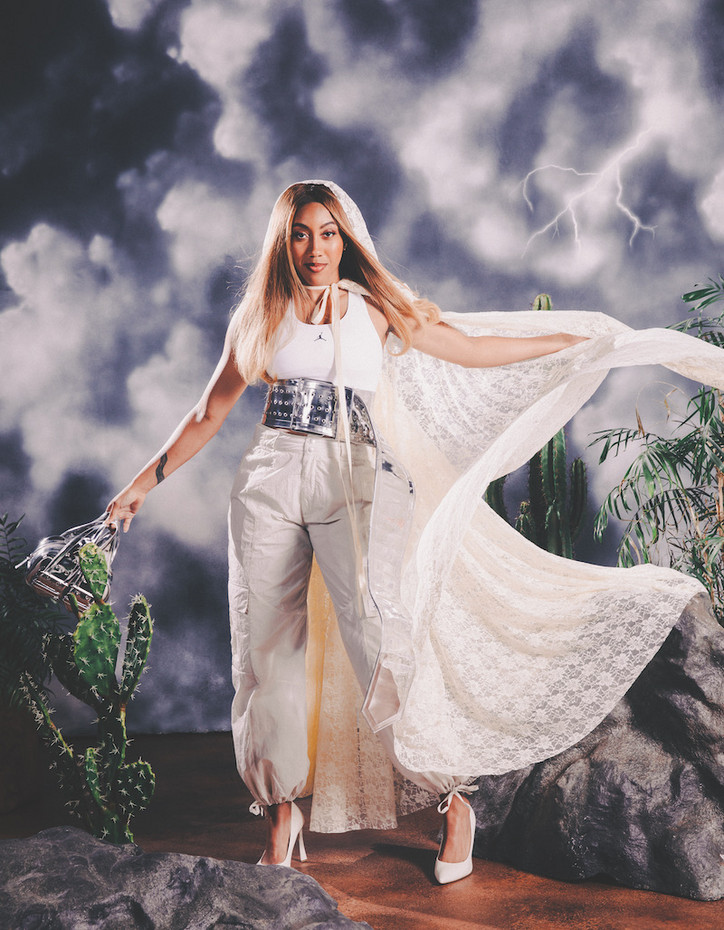
WNBA players already struggle to achieve visibility, given that the league is smaller and less publicized than the NBA, and waiving adds another layer of hardship. But the promise shown in Guirantes’ game, skill level, and significance as a professional player prevails as an undeniable fact, one noticed and upheld by Jasmine Jordan when she selected Jordan Brand’s incredible roster, and in the uproar of positive attention Guirantes received with her appearance on the Orange Carpet at All-Star Weekend. Guirantes is taking the situation in stride, bouncing back, and adjusting to life as a free agent, with the paradox of heroes and villains as a guide towards continued perseverance.
Speaking to me on Zoom from her hometown of Bellport, NY, where she lives and trains, and is staying in “game shape” while figuring out her next move, she dove right in with one of her favorite quotes — a reference from The Dark Knight, “You either die a hero, or you live long enough to see yourself become the villain.”
Waiving, or releasing a player from their team, is a reality of the league that can essentially leave players in an in-between state unless they are picked up by a new team within a mandated window of time. While waiving is common practice in professional basketball, and doesn’t necessarily reflect on a player’s abilities or keep them from joining a team in the future, but that doesn’t make it any less of a challenge, especially for an early-career player like Guirantes.
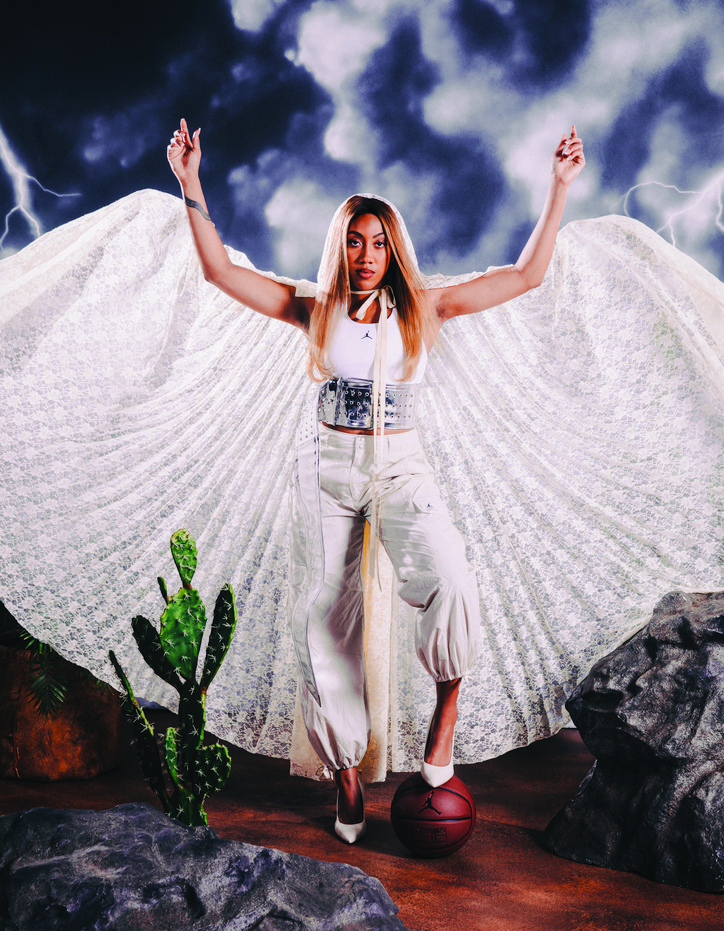
Guirantes has been playing basketball for most of her life, and she’s up for any challenge. While she may be young, she possesses a high level of self-awareness born of great experience, and easily lists the qualities that make her a great player: “I have an ability to impact the game in multiple ways and an I.Q. for the game. I play inside, outside. I’m a three-level scorer. I make my teammates play better, and I have really good defensive principles.” She sums it up with a laugh, “I know how to play basketball the right way. That’s it.”
The intensity of the training Guirantes partakes in every day is enough to make anyone who’s ever foolishly doubted the strength of female athletes rethink their position. Much of her free time is spent at the gym, and with upcoming international games, she’s staying busy. “I’m doubling down on workouts,” she says. “Even though I’m not playing in the league right now, I have big games around the corner. I workout with weights, do shooting, and do skill work. It’s usually three to four times a day that I’m in and out of the gym.”
She recognizes the importance of staying down to earth and not letting her self-esteem be dictated by those around her. “My whole career, I’ve been kind of quiet. Now I’m on the scene, and people are noticing me more. I feel like I’ve been the underdog my whole life.” She acknowledges that, “people don’t usually believe in you until you believe in yourself,” and credits her faith and her community for helping to cultivate this confidence.
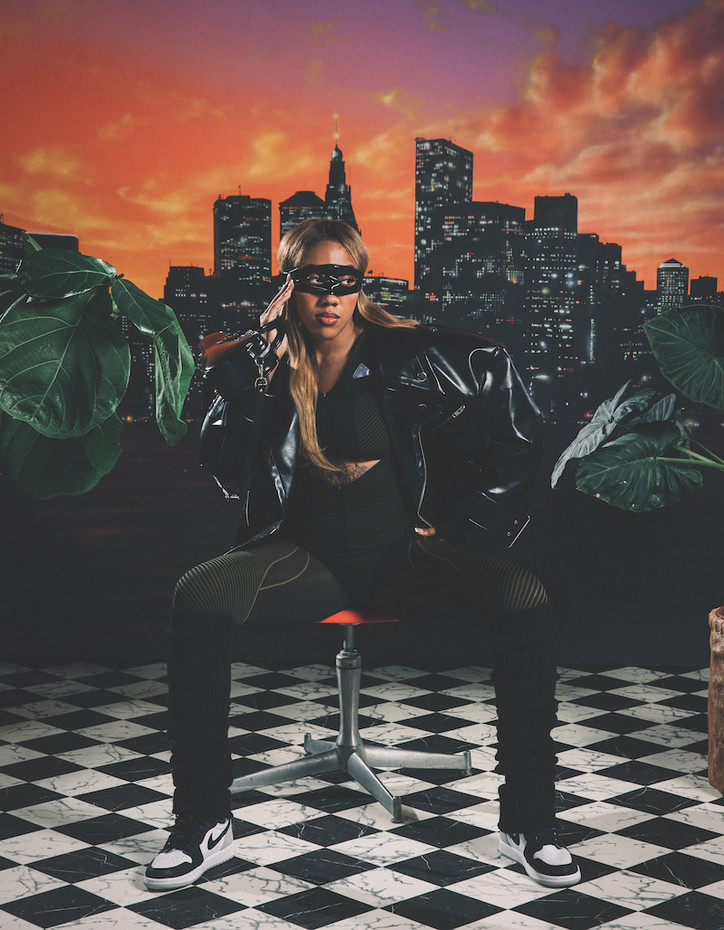
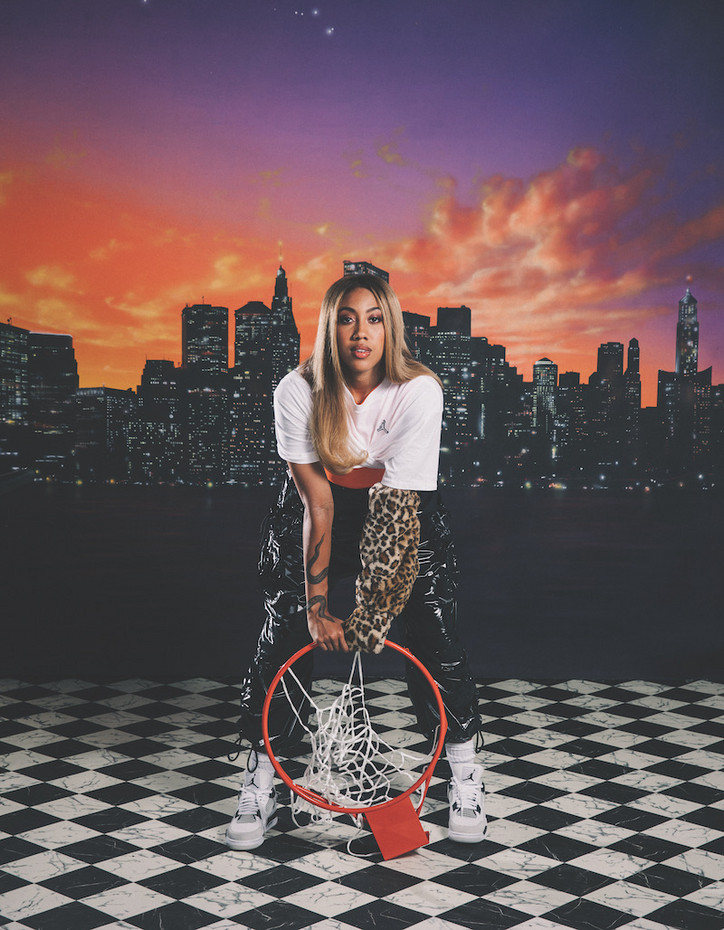
Guirantes was always driven to compete. Growing up, she regularly attended Knicks and Liberty games. “New York ’til I die,” she says, and basketball was always around, thanks to her athletic parents who were active in the neighborhood. “I just knew I wanted to play with the boys and beat all of them. If anybody tried to mess with me, I’d just come back at them harder. That’s the environment I grew up in. We’d have roast battles and stuff at the gym, so I never took anything too personally,” she says. While the conversation around female athletes often focuses on the sexism they face, Guirantes has never seen it as a personal setback. “You see it on Twitter with trolls, but it’s rare that you see it in real life.” In her experience, “Guys are actually eager to play you more, since you’re a girl and they know you’re good. A lot of times they actually respect you more. I play and work out with NBA G League guys all the time, and they treat me the same. We go at it. We’re just one big hoop community, honestly.”
Finding community has been an essential theme throughout Guirantes’ career. “I’m always in my community working out, so I see a lot of kids, and it’s very inspiring to me that they still are really in my corner. They don’t even know half the stuff I’m going through, but they’re happy to see me, and happy that I’m playing HORSE with them. I do all I can to show them I’m still motivated. One night, I ran home from the gym, and there were some kids outside, and they started clapping. It was like a movie scene. It shows them you gotta keep going, no matter your circumstances.” Guirantes is an embodiment of empowerment and success, standing out with natural charisma and dedication to the sport — regardless of title or status.
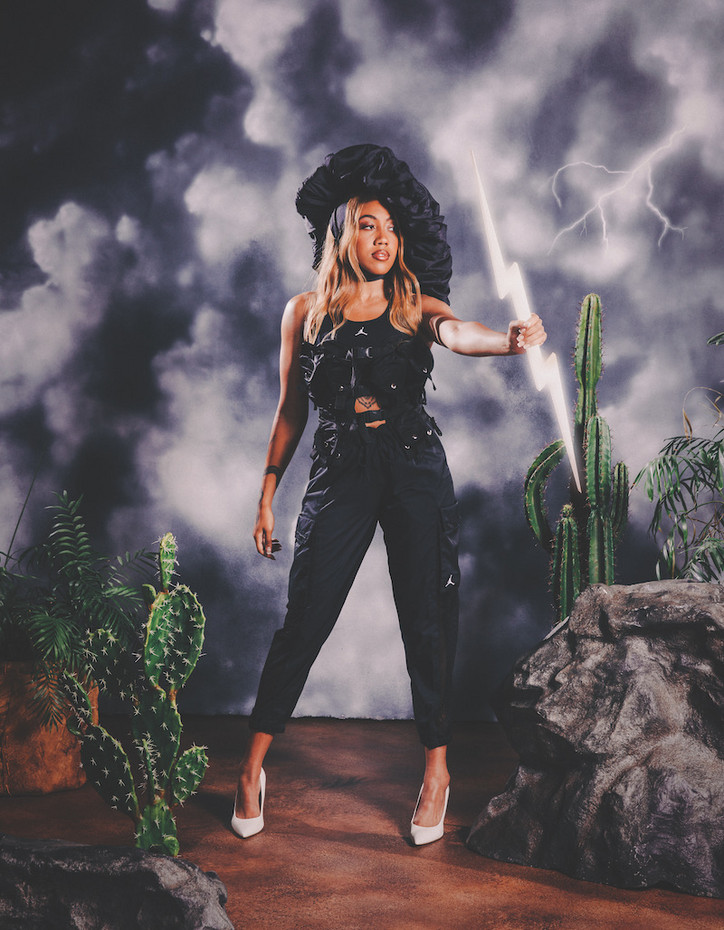
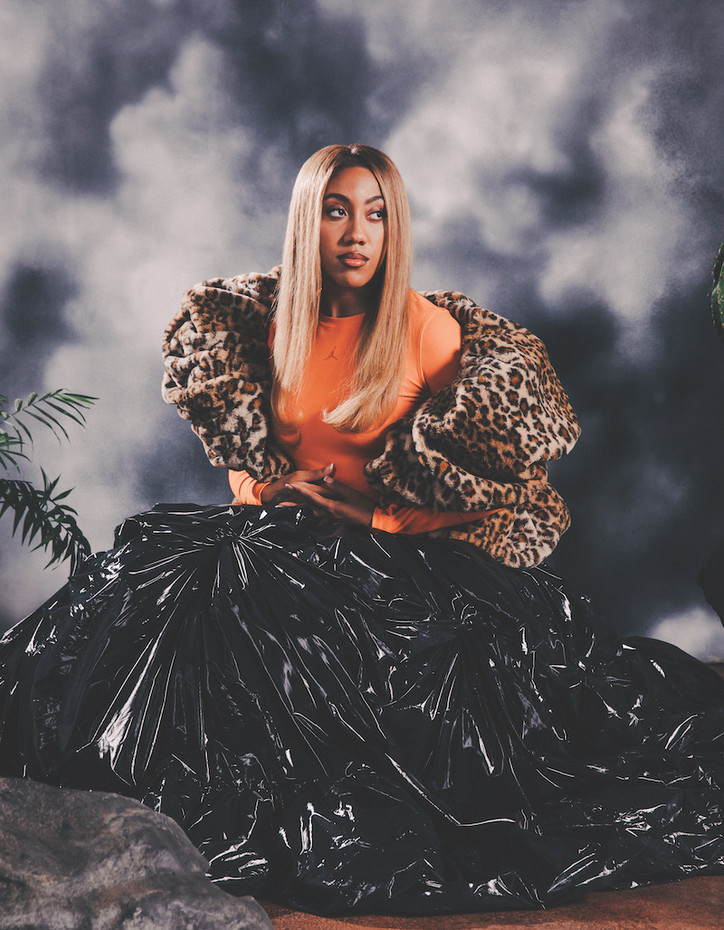
Rather than compare herself to her fellow players, she acknowledges that, “We all go through the same things and know what it’s like to be athletes and have people on the outside who have misconceptions.” These connections proved especially valuable in navigating the highs and lows of this transitional time. “One of my closest friends now, we had the same situation at the same time with the same team,” she explains. “We were going through it together, and we still have conversations to this day, and tell each other to stay grounded.” Going back to basics has been healing: “I was telling her about finding my love for just playing pickups and random games in New York City, and falling in love with the game again.”
The WNBA as a whole does not get the mainstream respect or attention it deserves, having been overshadowed by the NBA since its inception. “I do think the WNBA is trying their hardest,” says Guirantes. “I’d love to see more teams in more places and more televised games.” Getting cut wasn’t easy, but Guirantes knows that these setbacks come with the tricky territory of being an athlete.
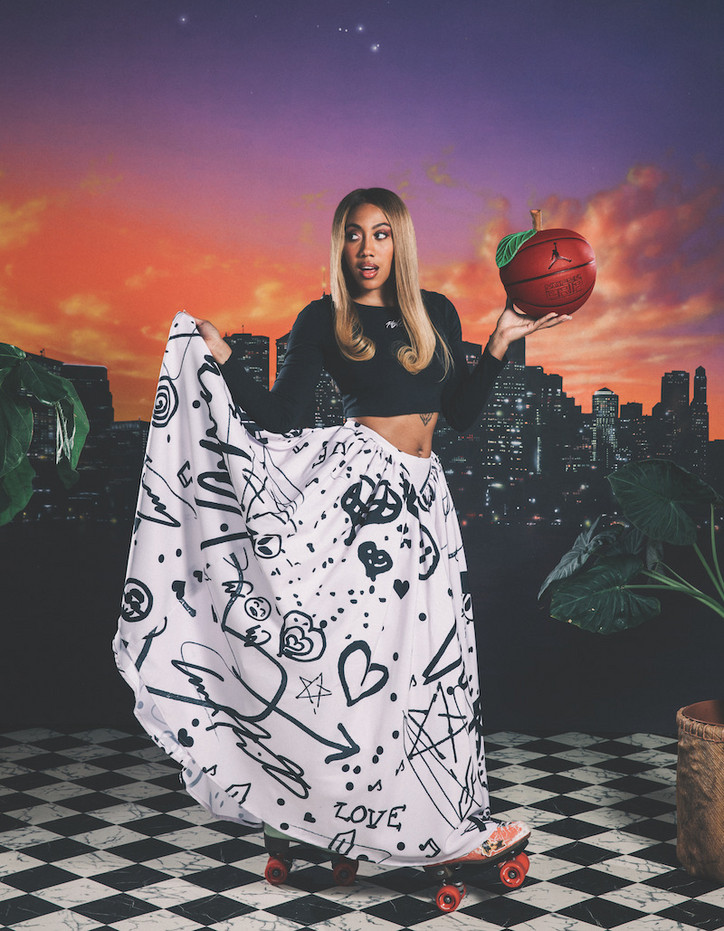
Off the court, she describes her personal style as being that of “an old soul,” declaring that “it’s simple, but can be bold at times. It’s either extra as hell, or more tomboy and laidback.” The superheroes and supervillains who inspire her philosophically are also a source of aesthetic inspiration, personas like Marvel’s Moon Knight and Thanos. She dreams of one day being a character in a comic book, has worn her hair in Harley Quinn-inspired colors, and most recently, she used a cape seen on the Marvel show Moon Knight as a reference point for a look she collaborated on with avant-garde New York design collective Vaquera. Vaquera’s playful sense of experimental worldbuilding and subversive spirit makes them a perfect fit for Guirantes. When she first mentioned her love of superheroes and supervillains to the designers, “their eyes lit up,” she recalls. When she first met the Vaquera designers, she told them, “I love big anime characters — anything that I am feeling, I’ll translate into what I look like.” The aforementioned cape is a white lace creation that brings an edgy femininity to the superhero’s most common accessory, playing up Guirantes’s strength and mystique.
Guirantes is on her hero’s journey. “The most I can do is hold myself accountable, be consistent, and be patient. I’m pretty determined to not rush this process. I want to soak it in and use it as motivation, but also use it to keep me humble. I think it’s one of the best things I could go through right now, because it’s making me stronger and more resilient. I’m not saying I’m psychic or anything, but I’m right on time with a lot of things.” She explains, “My name actually means ‘Angel Messenger of God.’” She finds inspiration in this divine optimism. “I’m living in the moment, seeing where things take me,” she says, “but in the back of my head, I have things I want to accomplish. I’m just going with the flow right now, and a great thing about basketball is it opens [me up to] so many opportunities, and as a kid, I was willing to accept all of them. I don’t think there’s anything I can’t do if I put my mind to it.”
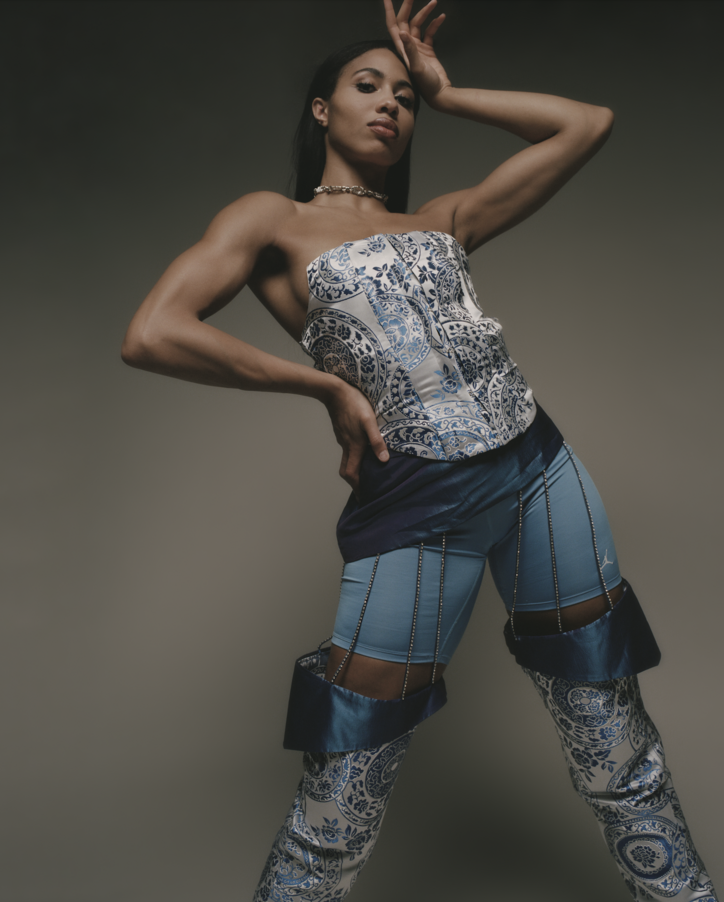
Harrison, 28, may have kept her first pair of J’s off the court, but she was always meant to play on it. As one of 12 competitive mega-jock siblings growing up in Nashville, Tennessee (many of whom went on to have college and pro careers of their own), her childhood was filled with basketball camps, running, bicycle races, push-up contests, and additional training in volleyball, track, gymnastics, and ballet. “Before I could even really remember, I was always outside,” she says. “I was a really huge tomboy. And if you know what it’s like to have older brothers, you know that they will always just want to rough you up. Being around that atmosphere, it really honestly made me as competitive as I am today.”
Her father, Dennis Harrison, once a defensive end for the Philadelphia Eagles, worked as a football coach at his alma mater, Vanderbilt University. When Isabelle would go to work with her dad, he would drop her off with the girls’ basketball team.
“Honestly, I used to think it was free babysitting,” she says with a laugh. “But I would be in there practicing. I would actually rebound for the girls, I would shoot layups with the girls. I remember the coach saying, ‘Hey, you’re really good.’” She was just six years old at the time.
“I was a really active kid, but I stayed with basketball because my older brother played in the NBA,” she says of older brother David Harrison, a former player for the Indiana Pacers. “And I was obsessed with him. Wherever he was going, I wanted to be there. When he would be in the news or stuff in Nashville I was like, he is my first hero. Before I really got into women’s basketball, I saw this first example from my family.”
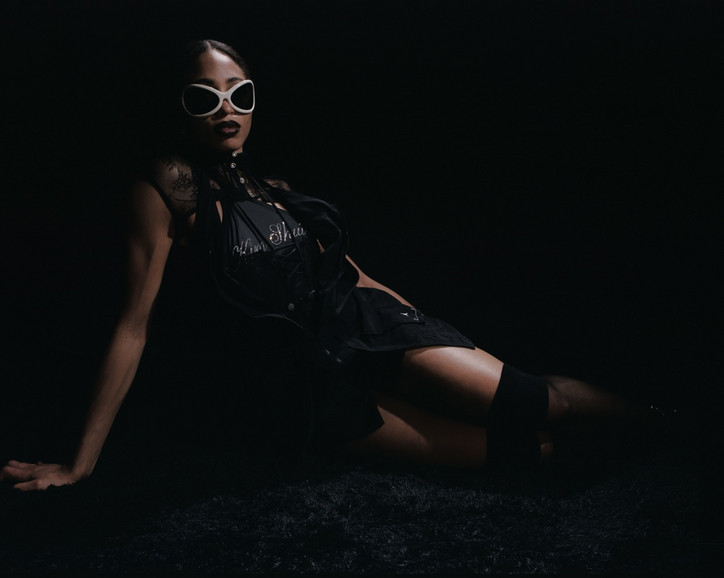
Harrison went on to play on the Lady Vols basketball team for the University of Tennessee in Knoxville, where she trained under the legendary coach Pat Summitt (who had accrued the largest number of career wins in college basketball history at the time of her retirement in 2012). In 2015, she was a first-round draft pick for the Phoenix Mercury, where she played alongside WNBA stars like Brittney Griner and Diana Taurasi. She was traded to the San Antonio Stars in 2017, and then the Wings in 2019. She is currently based in Dallas, where she lives with her dog/traveling partner/unofficial team mascot, Prince, a spunky three-and-a-half pound Yorkie from Korea.
She is close with her fellow players. “I would define family by community. Again, I’m one of 12, and I’ve always been around a lot of people; you know how they always say it takes a village to raise a family. And I would say my parents’ friends, my neighbors, my siblings’ friends, everybody played a part in raising us, and I think that’s why I’m so big on people and showing love to the ones that show love to you... I think basketball has taught me that you can have extended family,” says Harrison. “It’s not just about blood relations.”
“We’ve grown a lot since my first year in Dallas,” she says. “And I don’t know, you start to become sisters in a way. And that’s not something that happens too often in the W, so I cherish those moments every chance that I get.”
A warm, magnetic person, Harrison speaks about basketball fervently; the sport is her “passion,” and games are “doing battle.” She describes what sounds like a punishing workout schedule with cheery enthusiasm, and words like “discipline” and “dedication” fly out of her mouth with pride. “I love sports,” she says, “I’ve been around them all my life. I want to stay in sports.”
But she knows she can’t hoop forever. She says that Summitt, who passed away in 2016 after a heart wrenching diagnosis of early- onset Alzheimer’s disease, encouraged her players to focus on their education. “A lot of coaches don’t care about that,” she says. “They could be like alright, ‘student athlete’ really means ‘athlete student.’ But Pat was very much about having student athletes. She told us, like as a boss, ‘you’re dribbling one day, but what’s your next move?’ The ball stops dribbling, so make sure you have a degree.’”
Harrison says that she’s carried those thoughts throughout her basketball career, always seeking opportunities for its expansion and longevity. She took an apprenticeship for the Dallas Mavericks during their last season, learning about the business side of the NBA. She puts herself out there, sharing vlogs about everything from life in the WNBA COVID bubble to her Fenty skincare routine on YouTube, and maintaining a popular Instagram account, inherently understanding that it’s a treat for fans to get to know the person behind the talent. And now, with the Jordan deal, she’s dipped a toe into fashion, collaborating on vibrant, sexy looks for the WNBA’s All-Star Weekend orange carpet with Shui, who worked alongside Jordan Brand designers to create looks that drew on the relationship she and Harrison built over the WNBA season. One memorable blue look featured brocade pants crafted to emulate armor, a motif that spoke to Shui after seeing Harrison in action at a game, with her awe-inspiring and relentless on-court style. And their collaboration has been meaningful to Harrison as well, who called the designs Shui created both sexy and sophisticated. “It was such a statement piece,” she says, beaming. “It was a whole dream come true. I was just blown away to see it. It was such a basketball cute girl moment.”
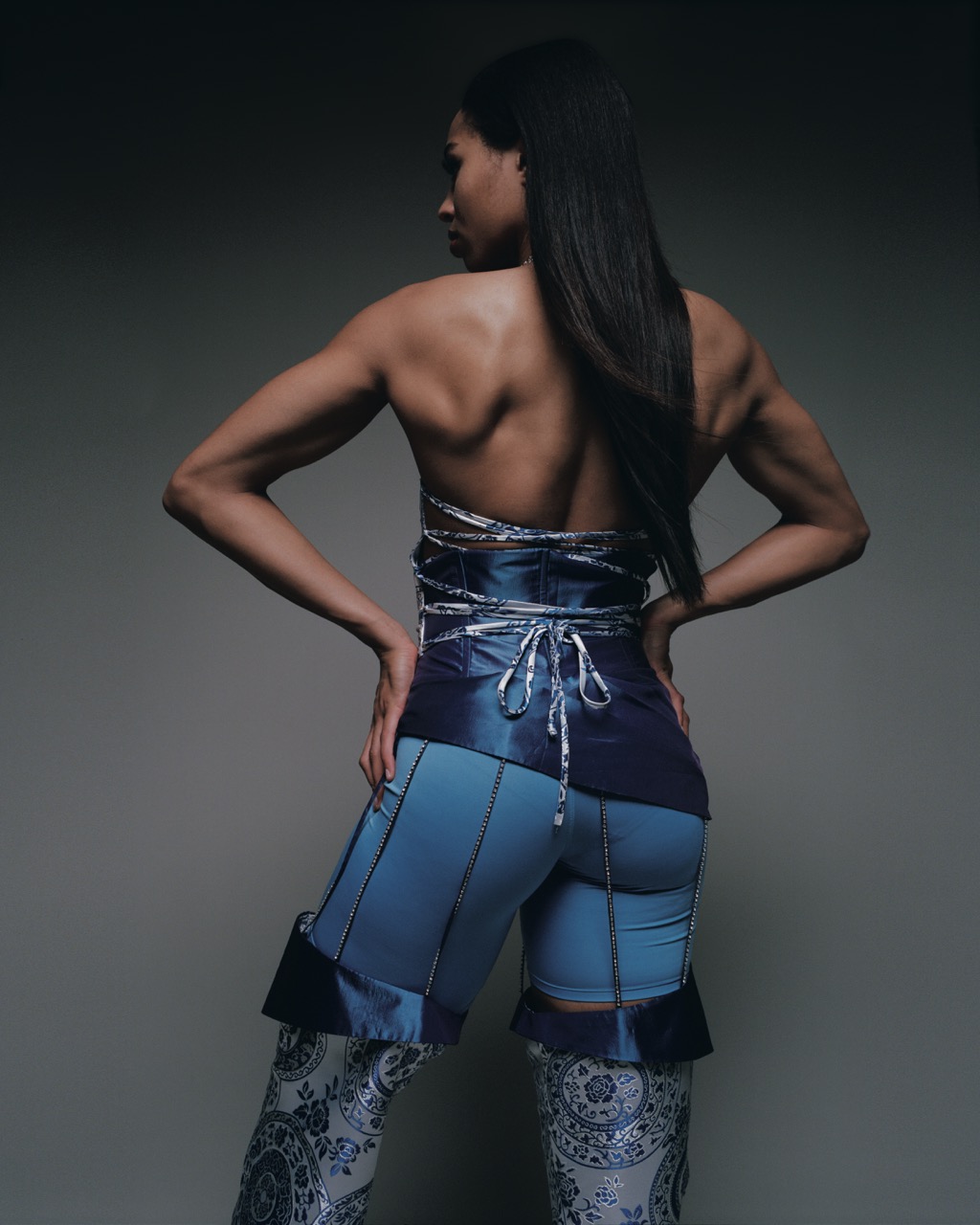
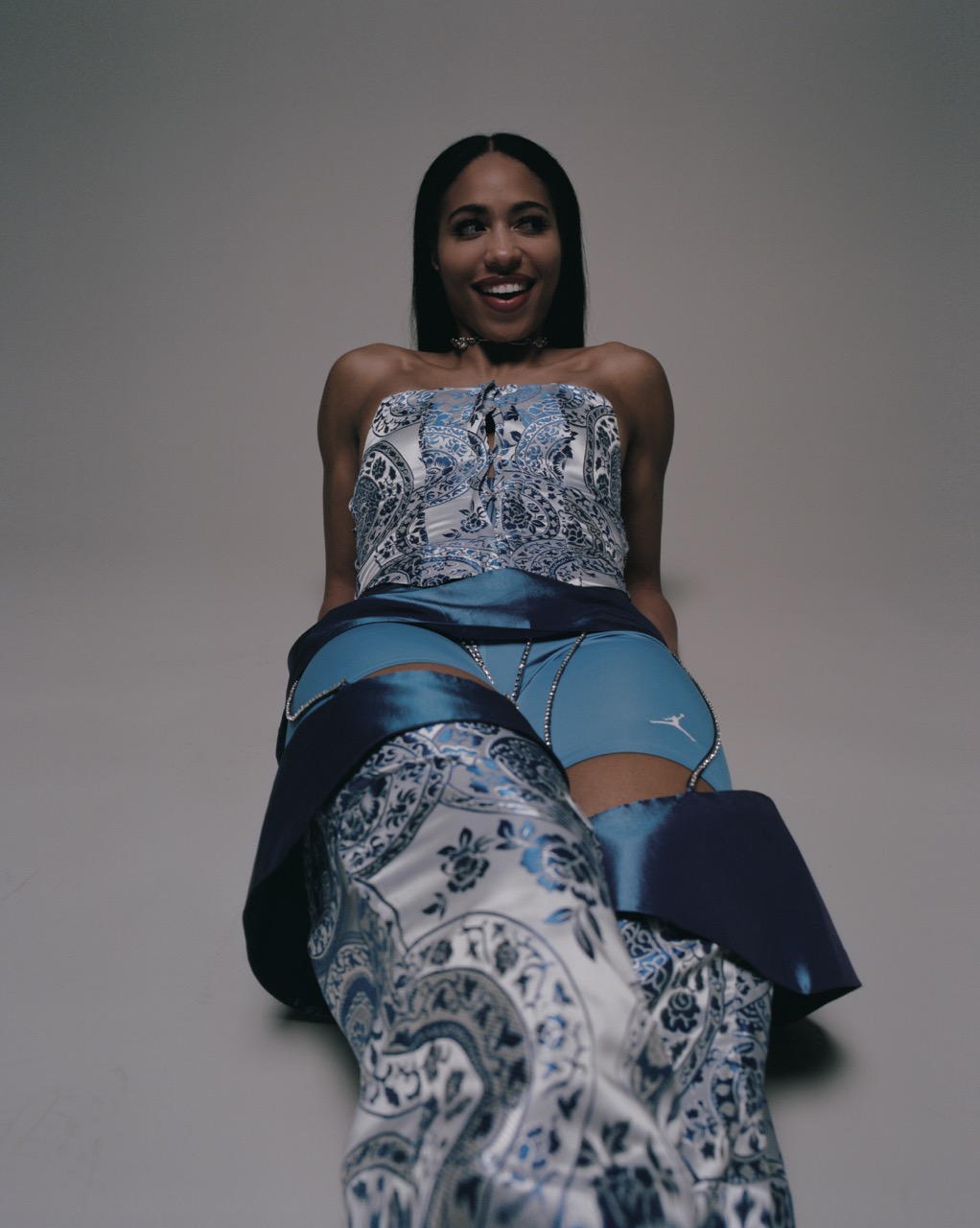
In building her relationship with Jordan Brand, Harrison has simultaneously developed a relationship and friendship with Jasmine Jordan, also known as Jordan, who works in Jordan’s sports marketing division and was responsible for the roster which Harrison was included in. She describes Jas as “uplifting,” and inspiring, saying she’s “all in all a girl’s girl, but also a boss and a mom.”
Jas also encouraged Harrison to step outside of her comfort zone while working with Shui. “I had some looks that I did with Kim and at first I didn’t know how I would be able to pull off some of them,” says Harrison. “[Then] I was talking to Jas and she was like, Izzy, this is all for you. Whatever you feel like you could rock or pull off, whatever makes you feel beautiful, that’s what we’re going to do. And when she said that to me, I don’t know, it changed my mind.”
The fellow Jordan Brand athletes constitute another sort of family. “The girls that Jas picked to have on the roster, I’ve never once had a bad encounter with any of them,” says Harrison. “They’re all such sweet, strong, beautiful women. We’re all different athletes, but we’re very much competitive. And we love what we do. And I think Jas did an amazing job, creating that. When we get together or she plans things for us in the future, she takes everything that we’re doing into account, each and every one of us, and where we’ll be. She checks in. She sets an amazing, amazing example of togetherness, community, and being a part of something greater than yourself.”
But despite the clear perks, life as a professional athlete — especially a female professional athlete — has its difficulties. WNBA players are constantly on the road; during the American off-season, many players elect to play in leagues overseas, where they can command higher salaries than in the States. At press time, Brittney Griner, Harrison’s former teammate, has been sentenced to nine years in a Russian penal colony after heading there to play, all because Russian authorities found a tiny amount of cannabis oil in her bag. An Olympic champion, Griner has played in the WNBA since 2013, and for UMMC Ekaterinburg in the Russian Premier League for nearly as long. As of this writing, negotiations over Griner’s release are reportedly under way between the US and Russian governments.
“For her to be in the country that she’s played in for so long, and to be in this position, where she hasn’t talked to her wife and her family hasn’t seen her, is insane,” says Harrison. “I really can’t imagine what she’s going through, but I think it speaks to why she had to go over there in the first place, and it was to get equal pay for her talent and who she is as a player.”
“It takes a lot to be over there for that long, and then have to come back and do this season.” She says, “And we’re not from there, so we can get in predicaments overseas. I hope she gets home very, very, very, very soon.”
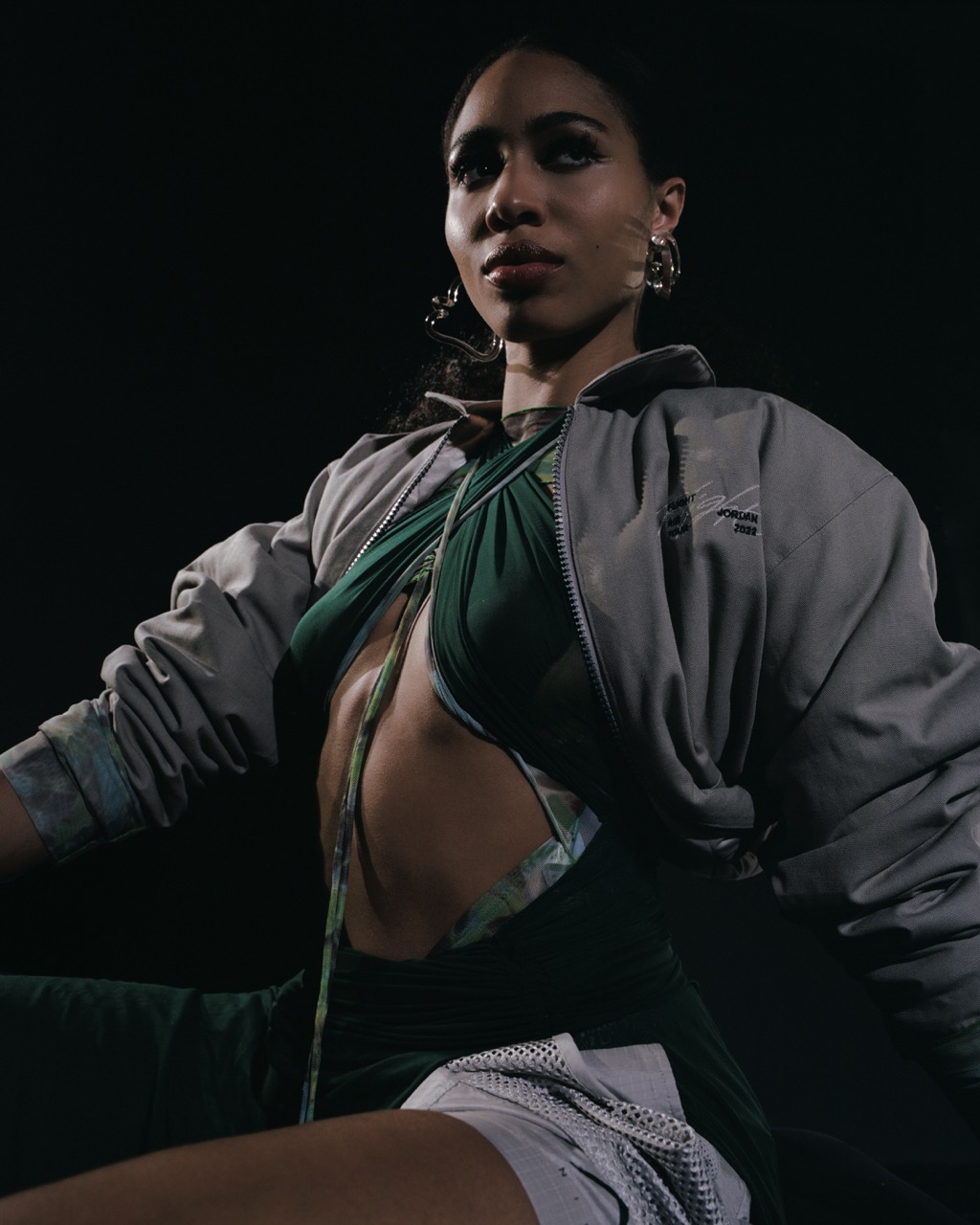
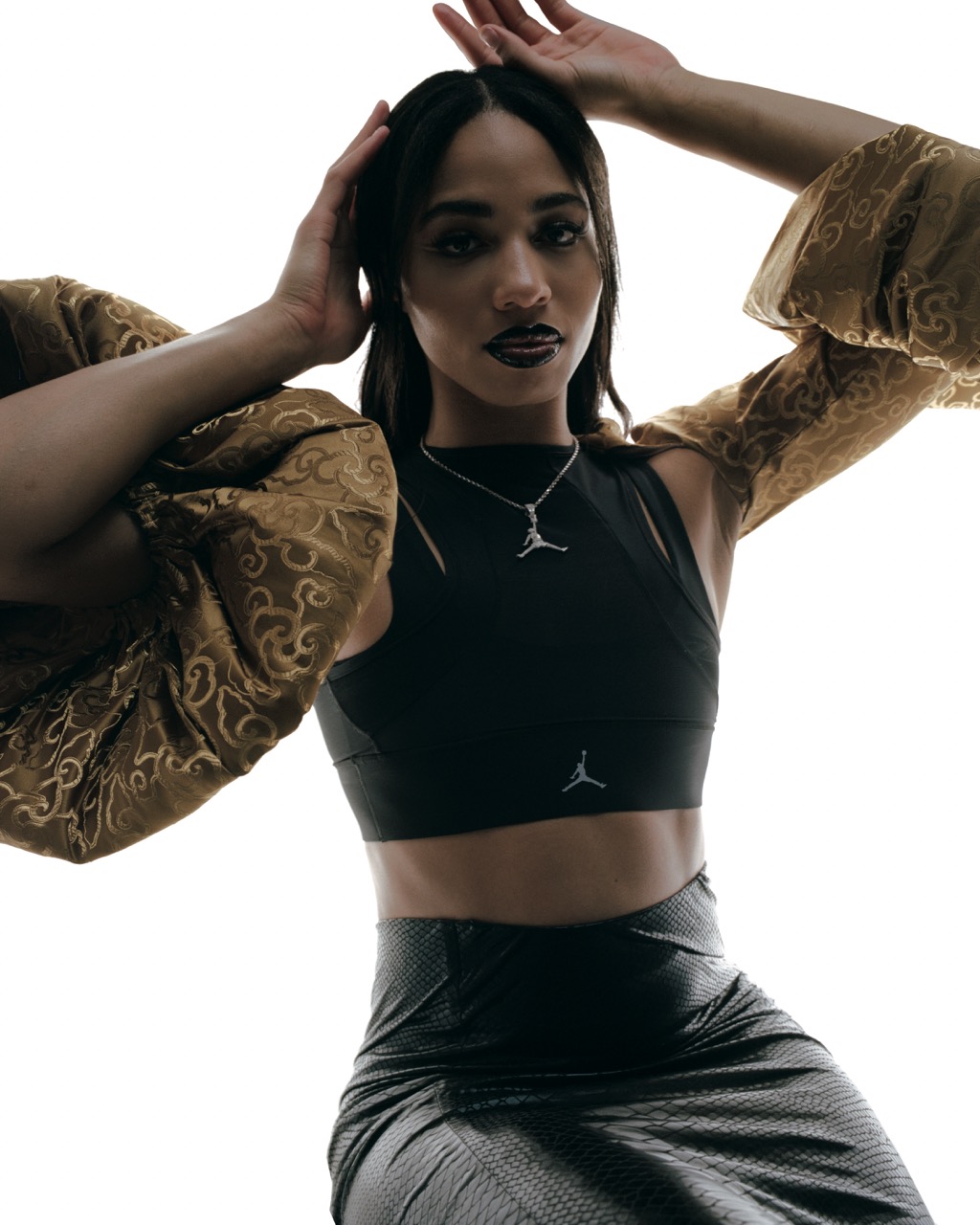
The personal cost can be heavy; Harrison says she was “miserable” with homesickness during her first overseas season in Poland. She got Prince during her second season abroad to help with loneliness, saying he “keeps her balanced” during painful times spent far away from family. After years spent surrounded by her many siblings, it was difficult to adjust to constant travel, and to so much time alone without friendly, familiar faces (she now has a sister who lives with her kids in Dallas, giving Harrison a little taste of being home in Tennessee).
But in addition to the risks that players face abroad — especially when playing in nations where they are met with outward racism and homophobia — the travel creates a catch-22 business-wise. As Harrison describes it, if you’re off playing overseas for months at a time, you lose out on sponsorship deals back home.
“That’s why I always say representation is so important,” she says. “I know people don’t want to believe that, but I can do more than dribble a basketball. I think it’s important to be multifaceted, and the women in this league are all so different. We don’t all fit in one box, and I love that because it lets you get to know a different type of basketball player. And it lets the audience see something that they’re not really used to seeing.”
“So if we’re not in the spaces to promote ourselves, market ourselves,” she continues, “people miss out on that.”
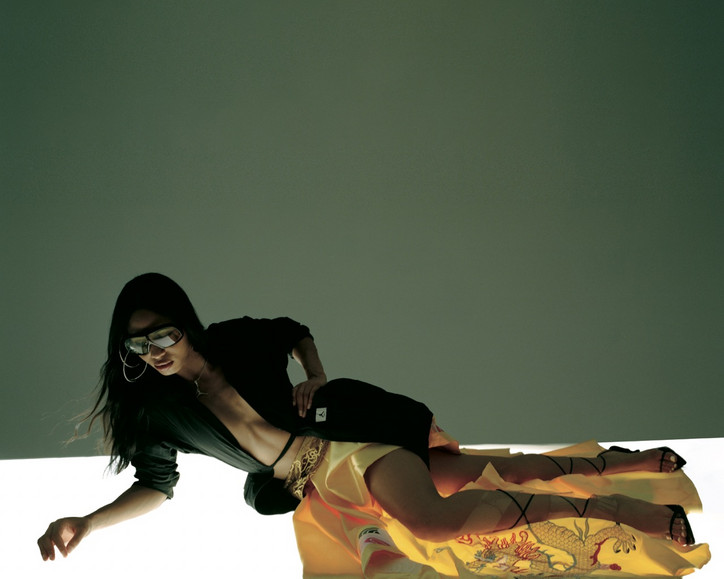
Harrison has been smart about promoting herself, opening herself up to new opportunities, and she wants the league to elevate her fellow players — especially those who face revolting backlash for their lack of feminine gender presentation. She says that men who give her friends in the league crap for being “tomboyish” are “honestly kind of jealous, because [they] can’t do what we can do, and [they] don’t look as good as us.”
“I could imagine the amount of growth we would have in our reach if we gave players an equal opportunity to even tell their stories,” she says, citing how her own appearance in an ESPN documentary gave her following a big boost. “I’ve had so many new people follow me off of that. But they would not have known if we didn’t create projects like this. And I hope this is something that they do every year for new players, because I feel like our fans deserve it. Our audience deserves to not only see us on the TV screen, or on League Pass, but to see projects that we’re involved with. That creates a community and a fan base. So I hope we have more inclusion for all players in the league.”
Harrison has a bird’s eye view of the future of her career and the league. But for now, she’s playing, happily and with deserved pride. She didn’t go abroad this year, and was able to settle into life in Dallas. Prince keeps her on a schedule. She gets to hoop in Jordans.
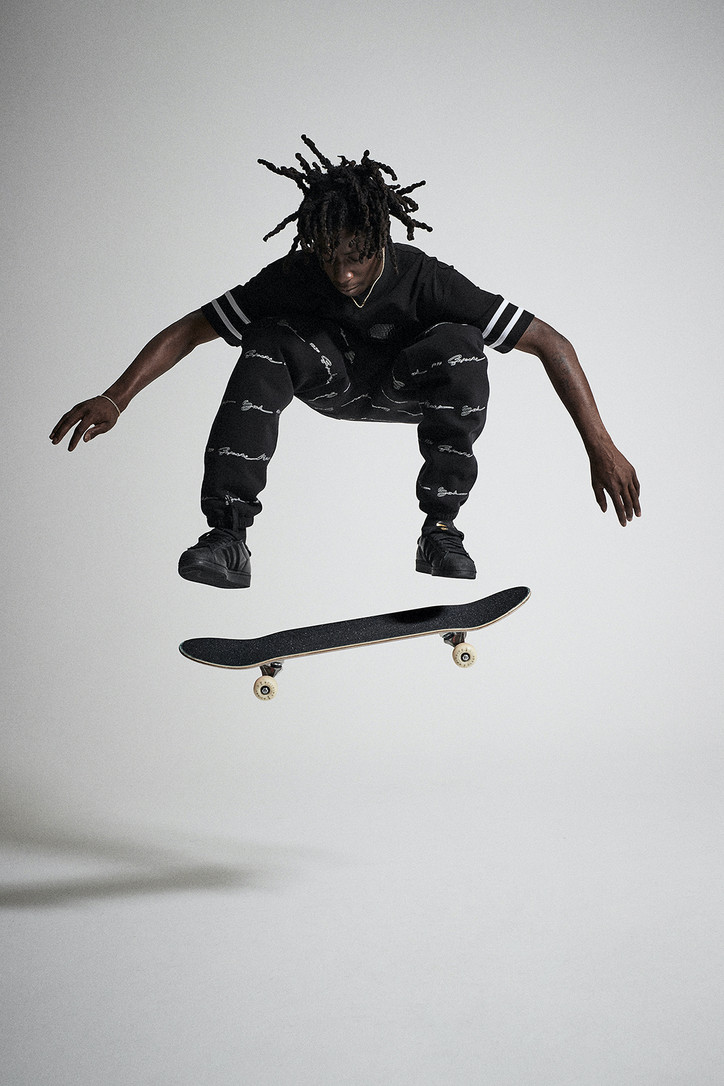
The heritage classic Superstar was re-imagined with ADV innovation designed for skateboarding. This technology provides an improved fit and board-feel, as well as added comfort and durability.
Kader ushered in his first shoe with a monotoned triple black colorway to pair with gold accents alongside adidas's quintessential three stripes, and an insole featuring Sylla’s signature. As his first pair, the assertive all-black shoe might ring as a bold statement, but in Kader's defense, these shoes are for skating. The colorway of his choice not only aids in the appearance of dirty beat-up shoes abused from a long session at the skatepark, but they also go with every outfit.
office was able to sit down with the young skater to discuss the details of his latest drop.
Where are you right now?
I'm in LA.
Congratulations on your shoes, mine just came to my house. Do you remember what your first reaction was when adidas offered to sign you?
I guess like, I was really happy. I just didn't expect it. I didn't think they were really watching me like that. I didn't think it was going to be as easy as they made it.
Who was the first person you told the news to?
My mom or my brother. My mom's like — she always gets excited when I signed a deal. She was fucking really happy. They were showing a lot of love. They [adidas] just gave me everything I wanted. Like they were talking to my mom too, kinda. I think like my mom had a conversation with Paul Shier, or whatever.
Was it your idea to sign on with a shoe or was it adidas?
I don't even remember. I think it was mutual. I think they asked me first and, obviously, I was super down. Like, man, I needed to do that. I was so surprised. I just asked to do a Superstar and they were down. It wasn't really like hard. I feel like when I first started talking to them, that was like brought up already.
But why pick a shoe over something like a t-shirt?
Just because like a shoe, a Superstar is just so iconic. I needed to do something like that, and adidas was down for this shoe. So like obviously, I had to do a shoe.
What was really important to you that you kept in mind as a skater when creating your shoe?
Superstars are like my favorite shoes. So like, I already felt like those were the only shoes I really wanted to do. I just love skating them.
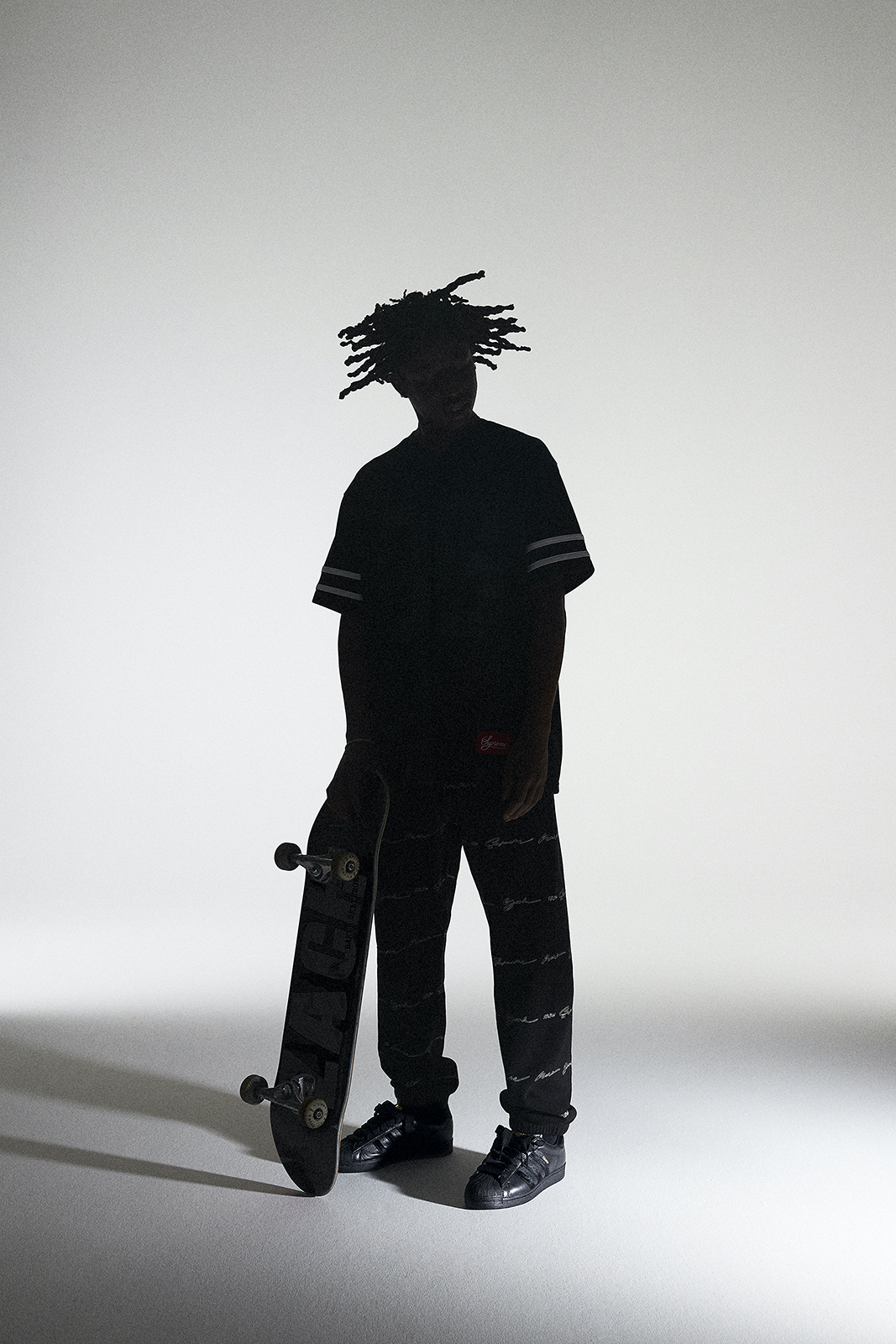

You have a multitude of friends on the adidas team, like Tyshawn [Jones] who has made shoes just like you did. Did you take any inspiration from them or ask them for any advice?
Not really. I try to do it on my own. I always wanted to see if I could like design a good shoe and just see if my ideas would be good or useful, at least. So I don't know, I just wanted to do this one on my own. But it was like me and the designers, the designers definitely like showed me what was up, and like told me what materials to use and whatever.
Who was the first of your skater friends that you gifted it to?
Um, Honestly, probably Tyshawn [Jones] because I knew he could get it the easiest, he rides for adidas himself, I don't know. Like, most of my skate friends know. So like, my friend Cooper, Avi, Spencer, all my homies, I just give it to anyone.
All black is such a bold choice for a first shoe or a shoe in general. What made you go for that look?
I've always liked more simple shoes. I like all black too, you can do more styles and shit. Like, all black is like the simplest, like coolest color, I guess.
Yeah. And they don't really get dirty. So anyone who's skating, or anyone who's trying out skating can benefit. I know when you first start skating, you go through shoes so easily. So, you're making a lot of moms buying the shoes happy.
So good. Yeah, guaranteed to stay clean.
A lot of skaters have this thing about their kit, and when they have a good outfit on they skate better. Do you think you skate better when you wear your shoes?
Definitely. Yeah. Definitely. I feel like it gives you confidence — I don't know, it's like a mental thing. It's definitely true though.
What is your go-to outfit while wearing those shoes?
Just colors, different colors I guess. Because all black, you can't just go all black because I don't want to look like a robber or some shit.
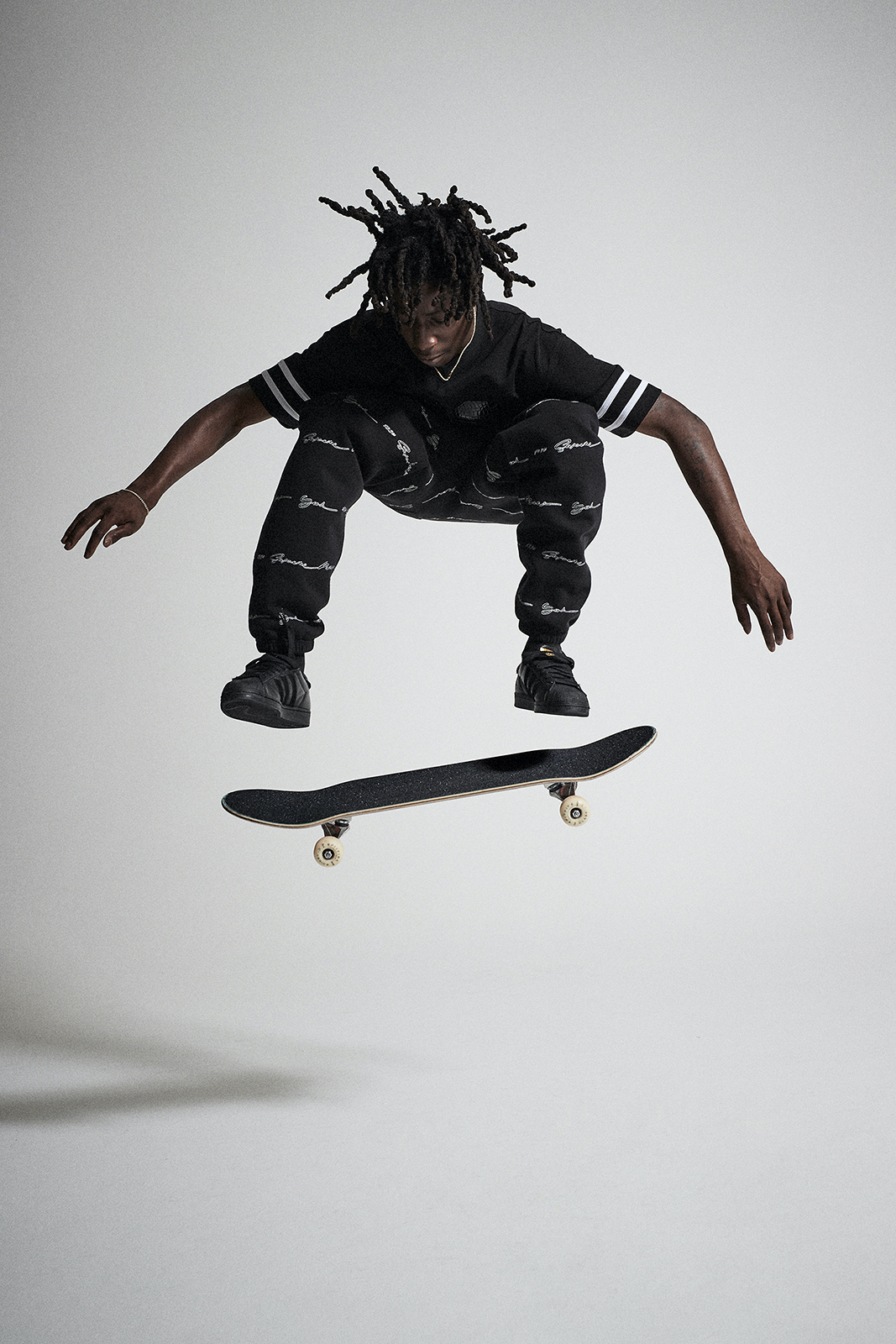
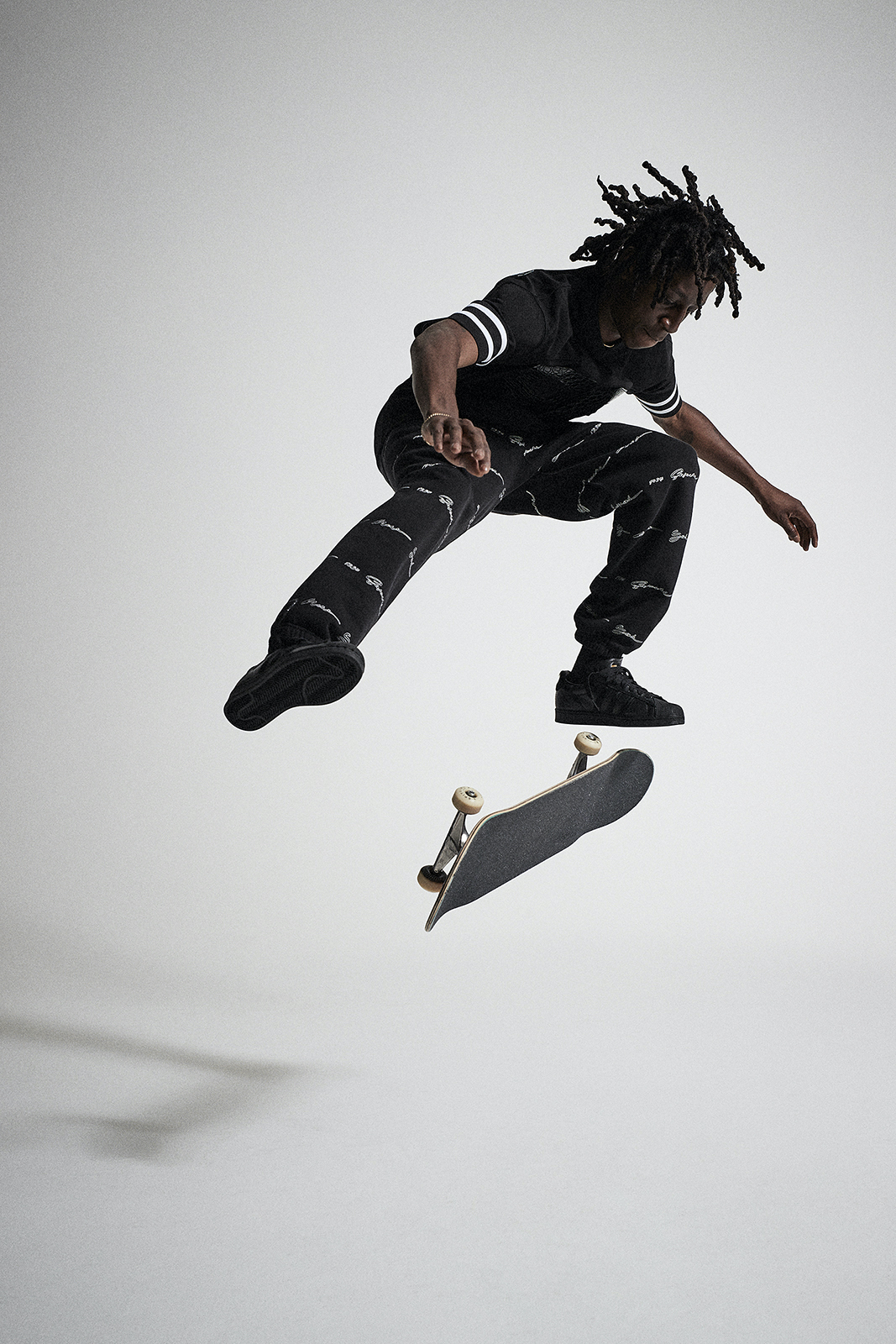
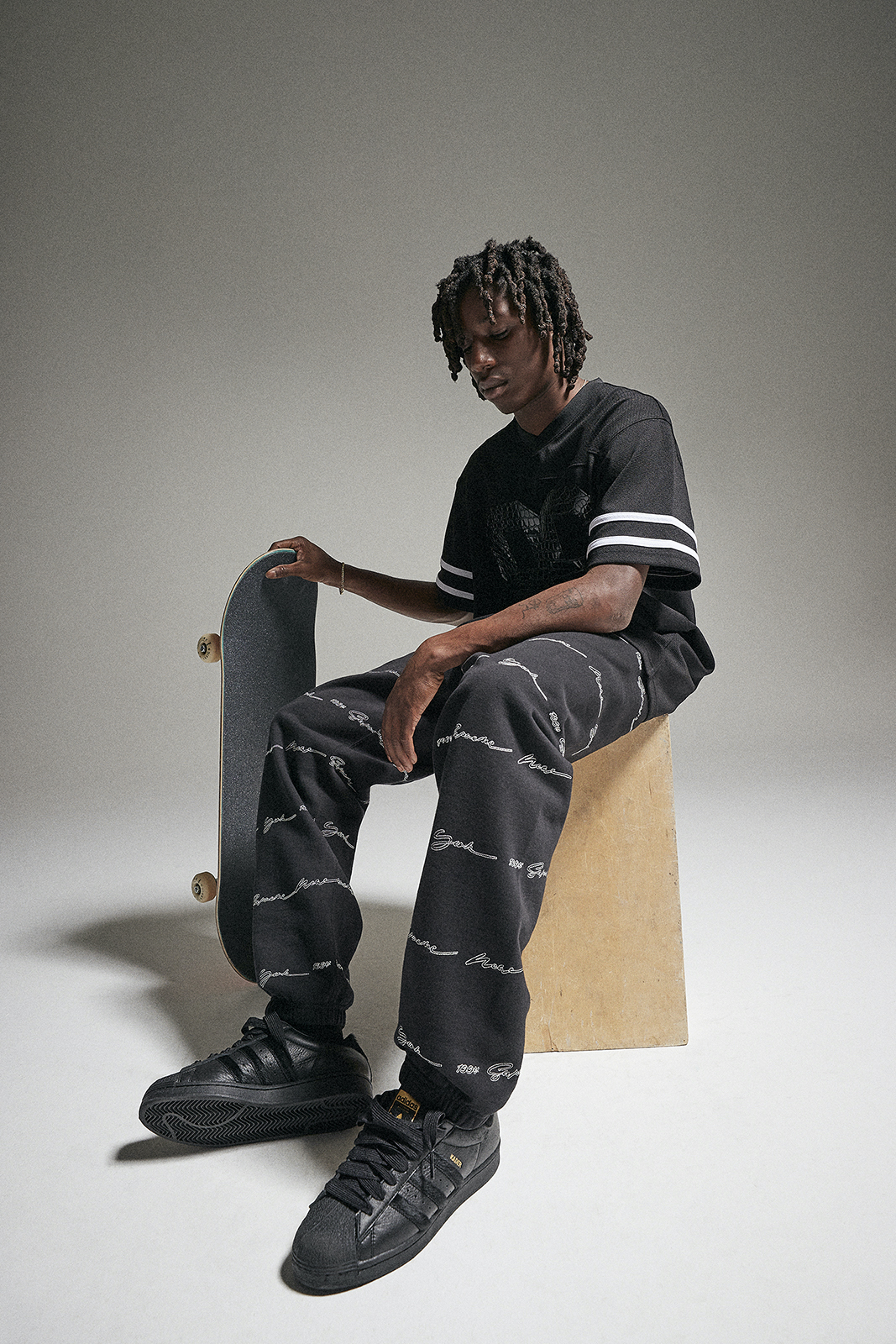
Any secret details that were put on the shoes that might be missed by the blind eye?
Nah, there's like my name on the sole, like the signature of my name on the insole. But nothing really, nothing too detailed. I don't know if the back patch comes with like the regular Superstar Adidas, but there's not really any like little details that anyone wouldn't notice, but on the next one there will be for sure.
Can we expect any skate parts coming out with you and the adidas team?
Yeah, there's a part coming out in like a week actually coming with the shoe. So, that should be sick.
Is there one person living your dead that you'd love to see where your shoes?
Um, Living or dead? I wish I could see like [Michael] Jordan wearing my shoes or something, but like that would be too crazy. Maybe like, Will Ferrell, Will Ferrell wearing them would be pretty fucking sick.
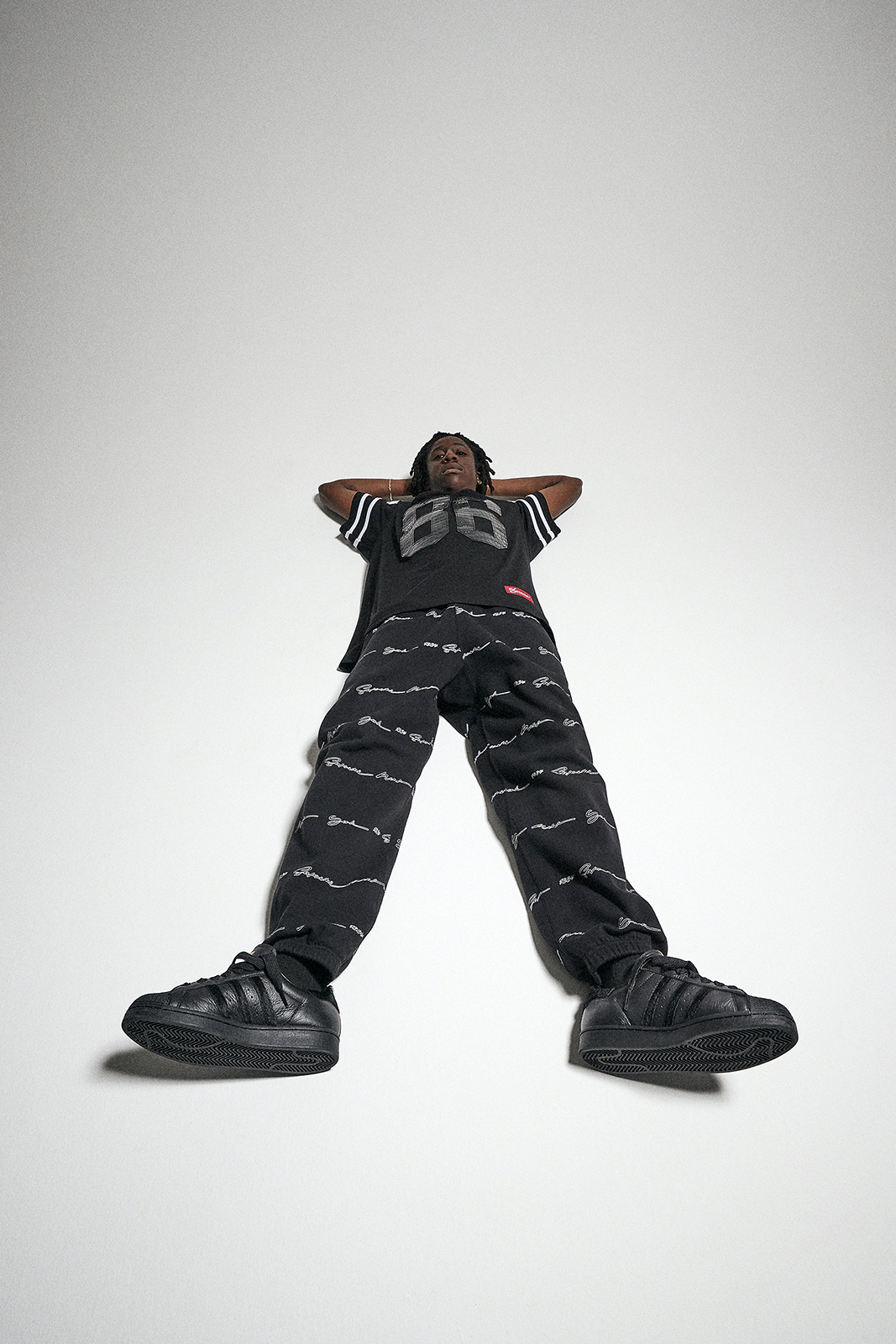
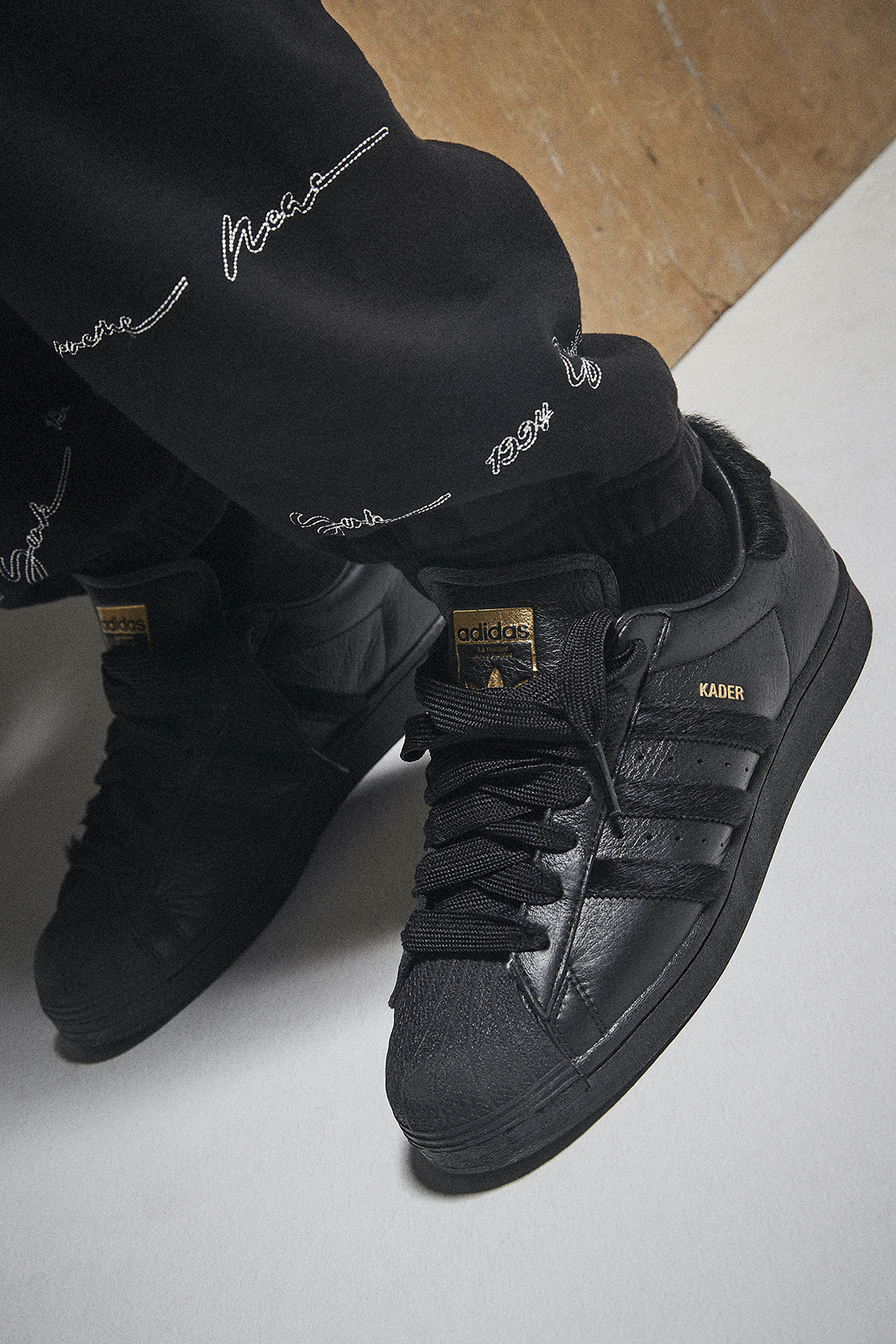
Signing on with adidas is a semi-big responsibility. Are there any initiatives or charities you're working with while on the adidas team? If not, are there any initiatives or charities you would love to work with while on the Adidas team?
I wanna work with like some — I did like charity type thing for this like skateboard I did with Baker. And I wanted to do something like that. I raised like $40,000 for the skate community in Uganda, that'd be super cool to do again. I just need to approach them with the organization I wanna do it with.
You've grown so much as a person and as a skater. Is there anything you want to tell your younger self about skating and maybe about the goals your younger self wanted to achieve?
I guess I'd tell my younger self to save the money. I'd tell my younger self to stay on track. I mean, I don't know. Like, I'm happy with where I am now, so I guess I tell my younger self to just keep doing what you're doing and save more money if you could. But I guess I just keep doing, Kader.